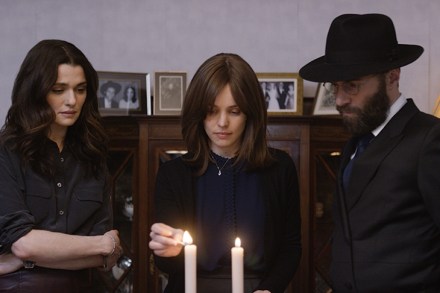Disappointed of north London
Disobedience is an adaptation of Naomi Alderman’s novel about forbidden, lesbian love in orthodox Jewish north London, starring Rachel Weisz and Rachel McAdams and I so wanted to root for the film and its characters. Go for it, women! Smash the patriarchy that says you must always be the object of sexual desire and never the subject! I’ll put you up, if needs be. I have a spare bedroom and it’s all yours! But while this should be a searing, Brokeback Mountain-style drama about love, longing and repression it just plods along, often clumsily. I didn’t root or not root as in the end it was impossible to much care.





















